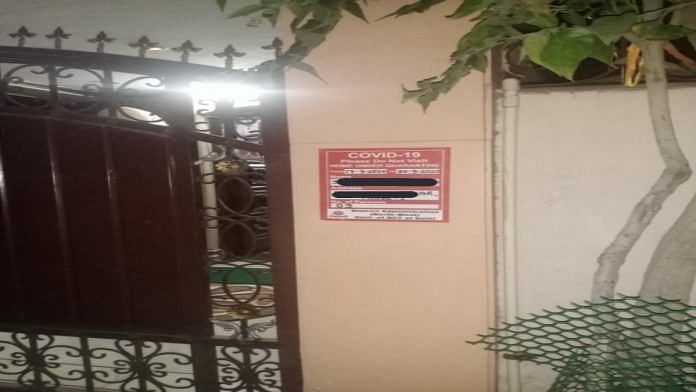In his weekly Mann Ki Baat address, PM Narendra Modi said, “I apologise for taking these harsh steps that have caused difficulties in your lives, especially the poor people.”
But the harsh steps got much harsher when migrant workers and daily wagers, who were returning and walking home to Uttar Pradesh due to the coronavirus lockdown, were reportedly marked with, “I violated the lockdown stay away from me” on their forehead. As if making them walk for hundreds of kilometres wasn’t enough.
Earlier this month, Delhi chief minister Arvind Kejriwal announced that houses of people advised to quarantine would be marked with a sticker. He explained that this step was “aimed only at cautioning others for their own safety”. While he appealed to all not to stigmatise such families and be “empathetic and supportive towards them”, it seems he’s living in an India that I don’t recognise.
We are a country quick to point, mark and marginalise — from throwing out ‘Bangladeshis’ in Bengaluru to beating up Dalit men for allegedly ‘eating in front of upper castes’. In India, if you are marked by society, you are marked by history.
With precedents like these, it’s easy to predict what those marked during the coronavirus pandemic will have to go through once it’s over.
Also Read: Delhi govt marks homes under COVID-19 quarantine — 4 times world saw such isolations before
History of marking ‘the other’
The act of marking fellow human beings carries a huge historical burden. The starkest example of marking is from Germany under Adolf Hitler.
Hitler and his regime forced Jews to wear the Yellow Star as an identifier. Houses in eastern Europe under German control were branded with the same mark, where Jews were segregated into houses such that around 220,000 people were accommodated for almost six months in 2,000 such residences. In the concentration camps, badges were used to mark prisoners— red for Socialists, political prisoners, and rescuers of jews, black for gypsies, lesbians, mentally ill, pink for homosexual men.
Much before Hitler, Muslim caliphs and medieval bishops had begun identifiying and Jews. And in some cases, Christians too. These markings were not always punitive, but also identified these groups for special privileges or protection.
Closer home, tattooing religious symbols on hands or wrists is a common practice. During Partition of India and Pakistan, many women were tattooed to identify as Hindu or Muslim — a tattoo could protect your life or sign your death warrant.
Marking and identifying the diseased, too, has precedence in history. In West Africa, people who died of Ebola are buried in marked graves. People with HIV/AIDS are stigmatised routinely and marginalised across the world.
Also Read: India locks down to prevent COVID-19 spread — here are restrictions imposed in your state
A dangerous trend for India
Marking can ugly legacy in society. Now, even the World Health Organization (WHO) has opted for the term ‘physical distancing’ instead of ‘social distancing’ to flatten the coronavirus curve. Because in some societies, social distancing can have frightening resonance, even after the pandemic has been fought back.
Modi also stressed in his Mann Ki Baat address that Indians should ‘maintain social distance’ but ‘reduce emotional distance’.
India currently has 1,160 cases of coronavirus. And already, we are seeing several incidents of racism against people from the northeast — calling them ‘corona’, evicting them from houses because of how they look. Doctors and airline employees, for whom we stood in our balconies and applauded, are being ostracised and left homeless. So much so that they have released statements, appealing for courtesy, respect and some freedom.
There is a greater chance of finding a cure for coronavirus than there is to find one for India’s insensitivity. And the social transitioning of someone who has been marked for Covid-19 is going to be rife with hurdles.
Marking is a sensitive subject, that carries with it unfortunate historical baggage, so if India wants to mark those infected with coronavirus, it must think of more sensible ways that don’t outlive the crisis. And not leave a social mark.
Views are personal.



